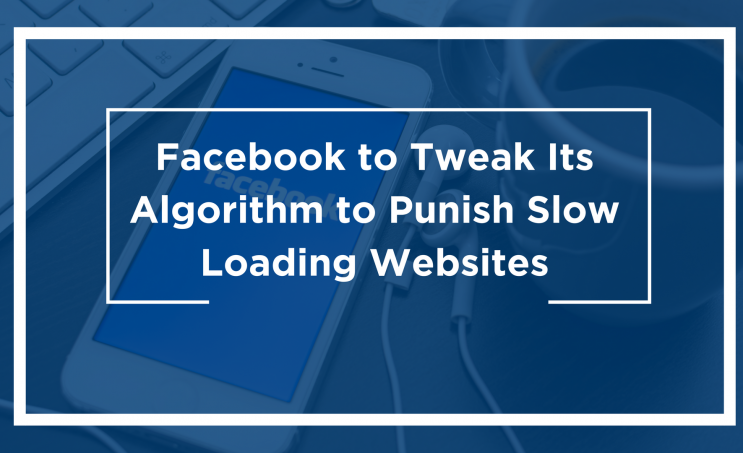Facebook to Tweak Its Algorithm to Punish Slow Loading Websites
By: Rank Media

The rise of mobile marketing in recent years has led to major platforms implementing new algorithm updates to favour mobile-friendly content ahead of web pages that are not optimized for smartphone device. While it’s well known that Google has taken strong measures to implement ranking adjustments for mobile-friendly web pages, another major platform has jumped on the train: Facebook.
In a recent blog post announcement, the leader of the social media marketing environment has stated that its algorithm will begin to penalize links to slow-loading web pages. Facebook will analyze the loading time of a web page from its mobile application and utilize those specific site speed scores to adjust the rankings of web pages within people’s news feeds. Although Facebook states that this will not affect most brands publishing content on Facebook, a small number of advertisers are likely to feel the impact of this new update. The incentive to promote quick-loading content does not come as a surprise, as Facebook’s ultimate goal is to increase the user experience within its platform, hence the list of enhancements made to its algorithm in recent years to penalize spammy content, “fake news”, and deceptive redirect links. However, there is an ulterior motive at play here from Facebook: increasing the adoption rate of Instant Articles, which is similar to Google’s Accelerated Mobile Pages project, otherwise known as AMP.
Although there is not a direct correlation between slow web pages and non-responsive web pages, the two issues usually arise on the same websites. With the majority of Facebook users accessing the platform via mobile devices, it’s imperative for Facebook to optimize its news feed for content that renders quickly and efficiently on smartphones. With Facebook crawling websites via its mobile app to estimate the loading time of a web page, it is now more important than ever to start analyzing how your website renders on mobile devices and optimize the site structure accordingly. If there is a significantly long lag time, not only will your reach decrease on Facebook, but you are most likely suffering when it comes to conversion rate optimization in other campaigns.
Facebook has also prepared resources for web developers and small business owners alike, providing information that can help webmasters to optimize their websites to maximize reach and engagement within the platform. Some of the best practices to optimize site speed include:
- Minimize landing page redirects, plugins, and link shorteners
- Compress files to decrease mobile rendering time
- Improve server response time by utilizing multi region hosting
- Remove render-blocking javascript
- Use a high-quality content delivery network to reach your audience quickly
- Remove redundant data that does not impact how the page is processed by the browser
- Optimize images to reduce file size without diminishing visual quality
- Reduce the size of above the fold content to prioritize visual content
- Use asynchronous scripts to streamline page render time
- Dynamically adjust the content for slower connections/devices
It shall be interesting to see if Facebook will begin implementing penalties for content that isn’t mobile-friendly in the near future. However, this update should be the impetus needed to analyze your existing website architecture and ensure that both the site speed and mobile usability is firing on all cylinders. If you hate web pages that take forever to load, it’s likely that your niche audience hates them, too.







 (800) 915 7990
(800) 915 7990
